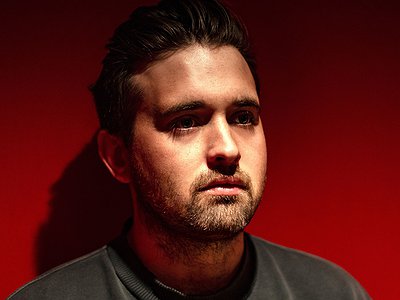Collaborations can take on many forms. What role do they play in your approach, and what are your preferred ways of engaging with other creatives, including the artists performing your work?
In film music collaboration they appear at every stage of the journey, from working with the Director, right the way through to the recordings and then the mixing. On standalone works, collaboration plays no part at all until I get to the recordings, at which point it’s integral. The emotion and feeling live players bring to recordings is what makes it. I like to give the musicians space and confidence to add their own character to the music in the studio, and it’s the part of the whole process I enjoy the most.
How is writing the music and having it performed live connected? What do you achieve and draw from each experience personally? How do you see the relationship between improvisation and composition in this regard?
Although I seldom perform live, my equivalent is in the studio, the music is so linked to knowing that it’ll be performed in the studio and knowing who will be playing it. Picking the players is so, so important. Like casting in a film, it gives you the chance to shape the piece and knowing who’s going to be performing it allows you to understand what it's going to sound like as you’re writing it, and so provides subconscious feedback throughout the writing process.
Time is a variable only seldomly discussed within the context of contemporary composition. Can you tell me a bit about your perspective on time in relation to a composition and what role it plays in your work?
Time is one of the huge variables that goes into writing each piece. It’s quite instinctive and it’s there to serve the music. Space within music fascinates me, and I think as you grow up as a composer, it’s something you become really more confident with.
How do you see the relationship between the 'sound' aspects of music and the 'composition' aspects? How do you work with sound and timbre to meet certain production ideas and in which way can certain sounds already take on compositional qualities?
Sound for me, serves the composition. You can't have an effective piece without solid compositional aspects, but you can have a good composition with rubbish sounds. So, they are secondary to the composition for me, and although often ideas of colour are formed at the same time as the composition, the sound aspect is usually brought into play once the underlying piece has been written.
Our sense of hearing shares intriguing connections to other senses. From your experience, what are some of the most inspiring overlaps between different senses - and what do they tell us about the way our senses work? What happens to sound at its outermost borders?
When you combine senses, you're multiplying the impact, which is why visuals combined with music have the chance to be so interesting. The combination of sight and hearing has the ability to be so much more powerful than either on their own. It’s fascinating that you can score something visual like a film in a hundred different ways and each way could be as valid as the next, manipulating the scene to a hundred different viewpoints and moods. It proves how one sense can dictate how another sense perceives its stimulus.
Art can be a purpose in its own right, but it can also directly feed back into everyday life, take on a social and political role and lead to more engagement. Can you describe your approach to art and being an artist?
My approach is pretty simple. I think I try to move people with my music and try to enjoy writing it.
It is remarkable, in a way, that we have arrived in the 21st century with the basic concept of music still intact. Do you have a vision of music, an idea of what music could be beyond its current form?
I’m quite old fashioned in my approach, I consider music an art form, although it needs to evolve and adapt. It's essential that the substance of the music is there, the thought is there and dressing it up in something new shouldn’t detract from the music and the idea underneath it.


